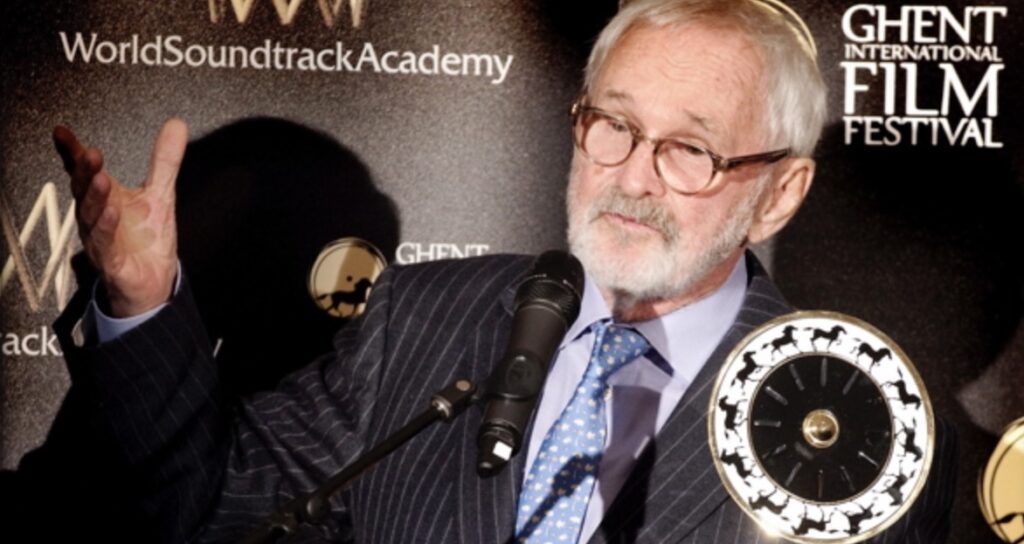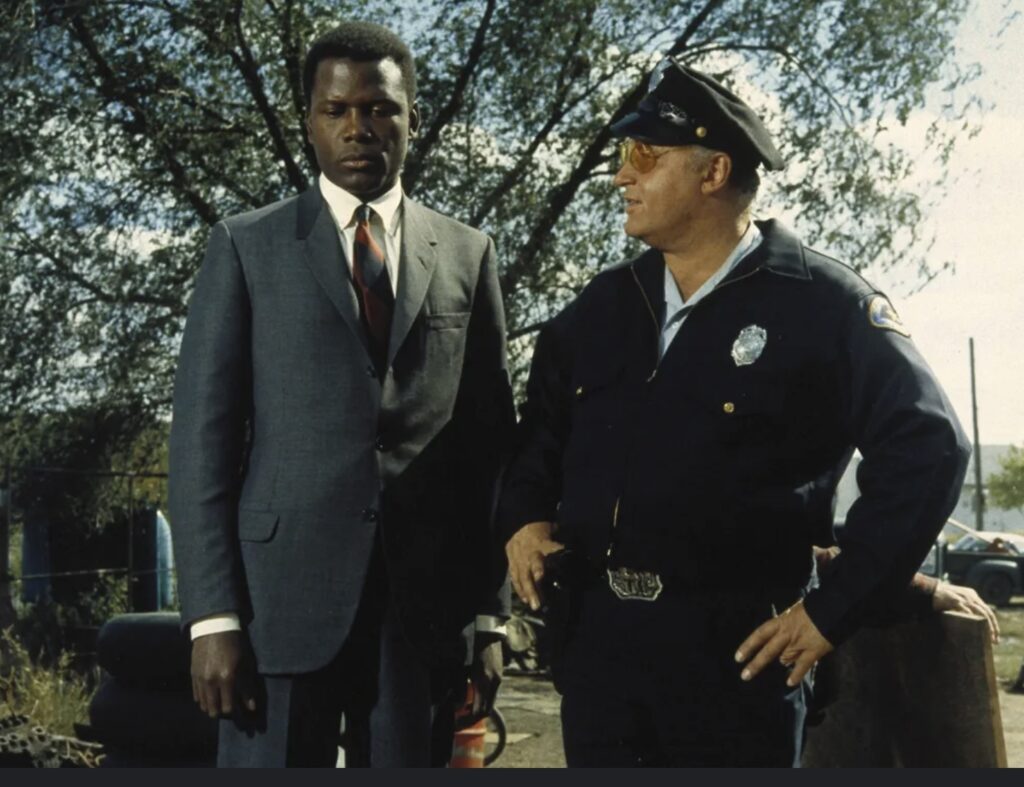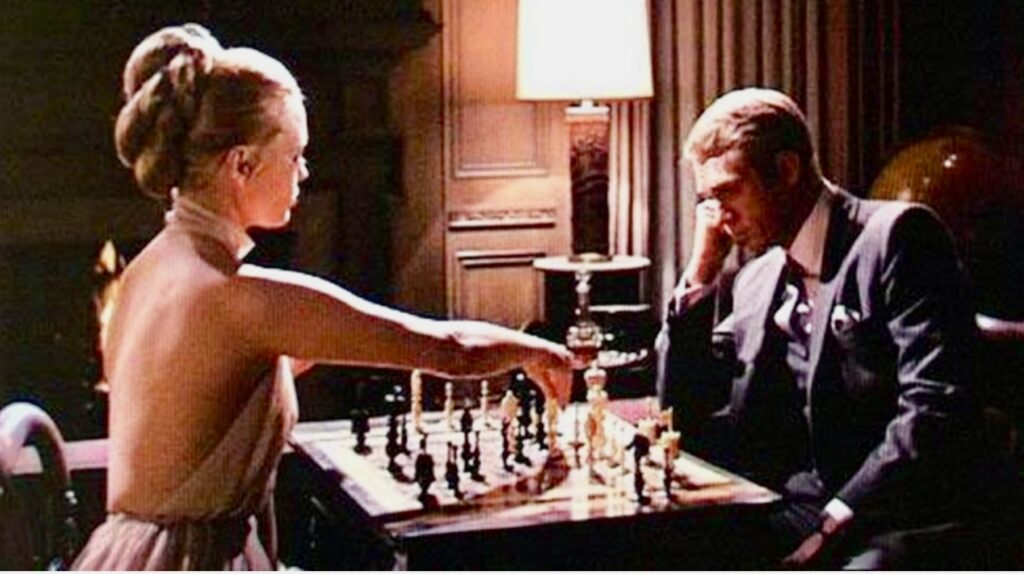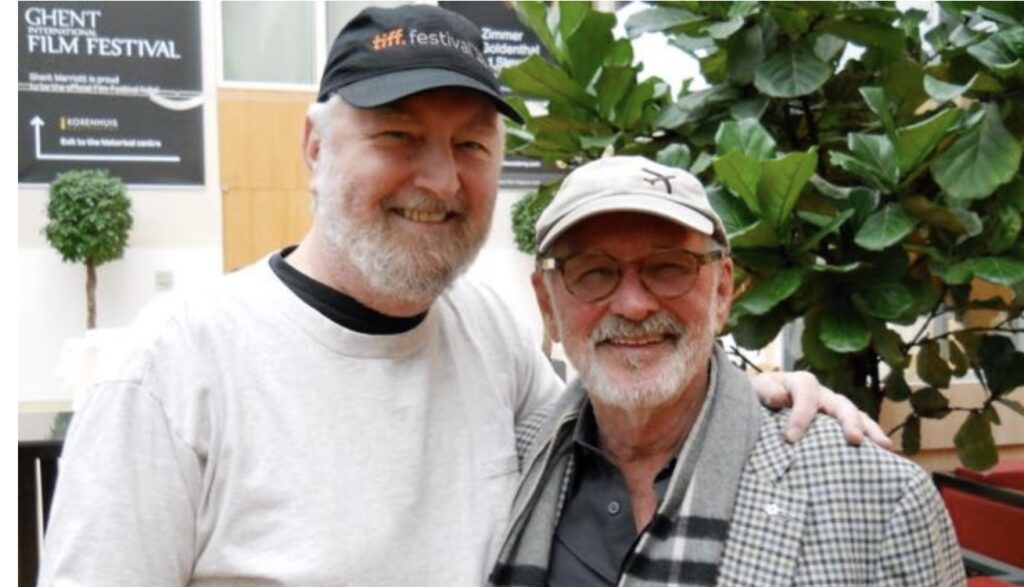LONDON – ’It kinda scares me,’ Norman Jewison said when I asked him in 2011 about the digital revolution in movies and the future of cinema. ‘Everything I see today is so mixed with violence and action. It’s moving so fast that I don’t know how significant the story is. When I was growing up, film was the literature of my generation. All of a sudden, I can see something else happening. It started with the video cameras and the fact that anybody can make a film now. The quality is good enough. It’s not very artistic. The video image, the television image, is different from film. I don’t think that matters to this generation.’
After working in television throughout the Fifties, the Canadian filmmaker, who died on Saturday aged 97, released his first feature film – ’40 Pounds of Trouble’ starring Tony Curtis and Suzanne Pleshette – in 1962 and made his last picture – ‘The Statement’ starring Michael Caine – in 2003. Over four decades, he made many memorable movies, earning four Academy Award nominations for best picture. ‘The Russians Are Coming, The Russians Are Coming’ lost to ‘A Man For All Seasons’ in 1067; ‘Fiddler on the Eoof’ lost to ‘The French Connection’ in 1972 and ‘Moonstruck’ lost to ‘The Last Emperor’ in 1988.
In 1968, his film ‘In the Heat of the Night’ won five Oscars including best picture, best actor (Rod Steiger, pictured below with Sidney Poitier), adapted screenplay (Stirling Silliphant) and editing (Hal Ashby). Jewison was nominated as best director but lost to Mike Nichols for ‘The Graduate’. Nominated as best director in 1972, he lost to William Friedkin for ‘The French Connection’ and in 1988 he lost to Bernardo Beryolucci for ‘The Last Emperor’.
His films have been nominated often for key crafts such as art direction, cinematography, music and screenplay with several wins. Actors who have been nominated for Academy Awards include Alan Arkin for ‘The Russians Are Coming’, Topol and Leonard Frey for ‘Fiddler on the Roof’, Al Pacino for ‘…And Justice for All’, Adolph Caesar for ‘A Soldier’s Story’, Anne Bancroft and Meg Tilly for ‘Agnes of God’, Vincent Gardenia for ‘Moonstruck’ and Denzel Washington for ‘The Hurricane’. Cher and Olympia Dukakis won Oscars for ‘Moonstruck’.
 During the 38th Ghent International Film Festival in Belgium in 2011, we talked about his career and the state of film over some Jameson and soda in the spacious lobby of festival headquarters at the Ghent Marriott Hotel.
During the 38th Ghent International Film Festival in Belgium in 2011, we talked about his career and the state of film over some Jameson and soda in the spacious lobby of festival headquarters at the Ghent Marriott Hotel.
‘My biggest problem with digital distribution is that I’m so afraid that people will watch my films on their phone, or on their wristwatch,’ he said. ‘It seems to bring the screen down to such a small size. I’ve always seen films as larger than life on a big screen with great sound, where you can hear a whisper, you can hear somebody swallow. I love that. We spend so much time trying to get the right sound recording and the right background, all of this stuff, the right music and everything else, and then when you put it on a postage stamp and expect everybody to kvell over that, it doesn’t do it a great service, I think.’
I reflected on the early days of rock’n’roll when kids listened to the radio on tinny transistors buy bought great hi-fi when they could afford to. Would kids keen to see the latest hit on their mobile grow to appreciate classic filmmaking or would it ruin it for them?
‘I don’t know,’ Jewison said. ‘I just don’t think “Bridge On The River Kwai” is going to look the same.
I mentioned that I had watched that picture on Blu-ray on my big screen at home and it looked gorgeous.
‘Maybe if people start to have larger screens and their own home theatres; when it heads in that direction, that would be interesting,’ he said. ‘But the experience of going into a cinema with a big audience is a kind of theatrical event. I like to watch films with a lot of people around me.
I mentioned that my lohgtime friend and colleage Ron Base, a friend of Jewison’s, had written about going to see the director’s epic comedy ‘Gaily, Gaily’ in Detroit a long time ago. ‘I was with him,’ I said, ‘in a big old theatre in downtown Detroit. The idea that people won’t have that to enjoy is very scary.’
‘Yeah, it is,’ Jewison said. ‘It’s starting to fade. They’re equipping theatres with digital projectors.’
Did he detect a difference with digital projection?
 ‘I think the only difference I can see is in clarity,’ he replied. ‘There seems to be a sharpness and harder line in the video than there is in running film through a projector to one hot light. I guess it really doesn’t matter. The more people are exposed to ideas – that becomes exciting to me. I love it when someone comes up and says, ohmigod, I saw “In The Heat of the Night” on television the other night and it held me. I say, “Did you watch it all? Were there any commercials?” They say, “No, it was on and I sat down and watched it all.” They go on about it, and then I think, well, does it really matter that they don’t see it in the same way as you describe it when you were sitting in Detroit in an old theatre with a big screen? Films are larger than life and maybe they should stay that way. I worry so much about that, but I guess you can’t stop it.’
‘I think the only difference I can see is in clarity,’ he replied. ‘There seems to be a sharpness and harder line in the video than there is in running film through a projector to one hot light. I guess it really doesn’t matter. The more people are exposed to ideas – that becomes exciting to me. I love it when someone comes up and says, ohmigod, I saw “In The Heat of the Night” on television the other night and it held me. I say, “Did you watch it all? Were there any commercials?” They say, “No, it was on and I sat down and watched it all.” They go on about it, and then I think, well, does it really matter that they don’t see it in the same way as you describe it when you were sitting in Detroit in an old theatre with a big screen? Films are larger than life and maybe they should stay that way. I worry so much about that, but I guess you can’t stop it.’
I mentioned that Richard Attenborough told me that now he finds his early films to be so slow and asked what he thought of his own pictures.
‘I’ve never been a big fan of fast cutting,’ he said. ‘Most of my films are fairly reflective. People take their time. I know what he’s talking about. I think we did work a little slower, editorially, in telling our story. It’s like life, I guess. When you take time and put in the pauses, it somehow works better, so I try to be as naturalistic as possible in my editing. I give actors room. I hold on shots. I have people thinking about it. I love music. Music and film is the perfect marriage for me. Look at the chess game in “The Thomas Crown Affair.” You’ve got Steve McQueen and Faye Dunaway (pictured below) and they’re playing chess with sex. He looks at her and she says, “Do you play?” He says, “Try me.” The music hits and now what do you have? You have chess with sex for, like, five or six minutes with only Michel Legrand’s music.’
 Jewison was in Gent when we spoke to receive the annual Joseph Plateau Award for lifetime achievement. Jewison said, ‘I read of the people that they have honoured. I thought, well, if they’ve honoured Mike Leigh, that’s good enough for me, because I’m a big fan of his work. They’ve honoured some interesting people, some interesting directors. It’s a great honour for me to be here although when they start giving you these things, you think, well, it’s because they think you’re ready to fall off the perch or something. They did a retrospective of my films at the Lincoln Center in New York this year and that was followed by a retrospective in Toronto – one turned the other on or something. I thought, Jesus, it’s starting to look like it’s all over, kid; you’ve had your shot. And I guess they’re right. I have had a pretty good shot at it.’
Jewison was in Gent when we spoke to receive the annual Joseph Plateau Award for lifetime achievement. Jewison said, ‘I read of the people that they have honoured. I thought, well, if they’ve honoured Mike Leigh, that’s good enough for me, because I’m a big fan of his work. They’ve honoured some interesting people, some interesting directors. It’s a great honour for me to be here although when they start giving you these things, you think, well, it’s because they think you’re ready to fall off the perch or something. They did a retrospective of my films at the Lincoln Center in New York this year and that was followed by a retrospective in Toronto – one turned the other on or something. I thought, Jesus, it’s starting to look like it’s all over, kid; you’ve had your shot. And I guess they’re right. I have had a pretty good shot at it.’

